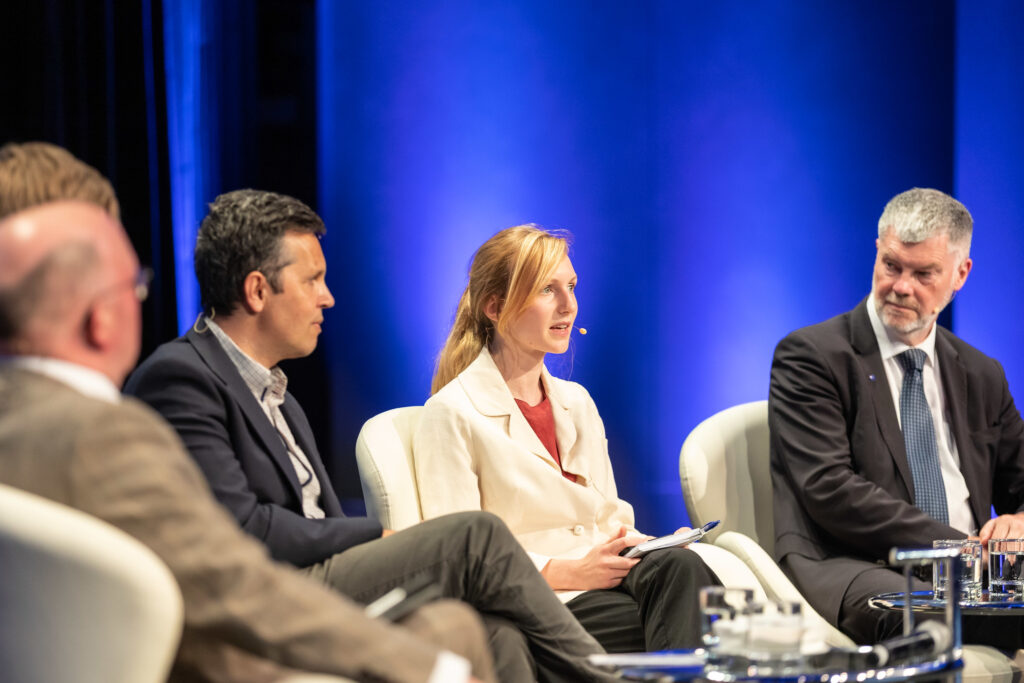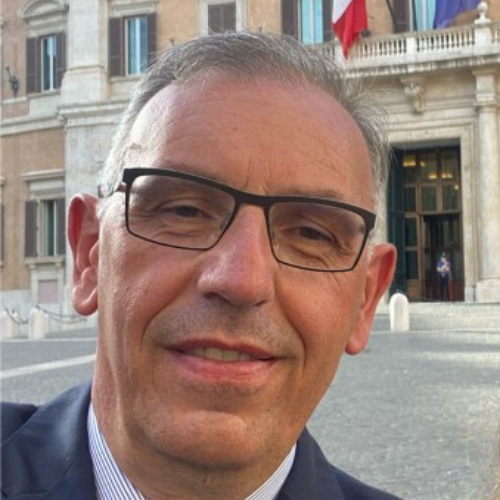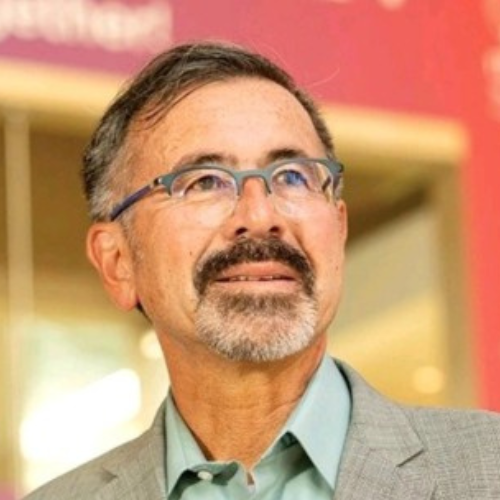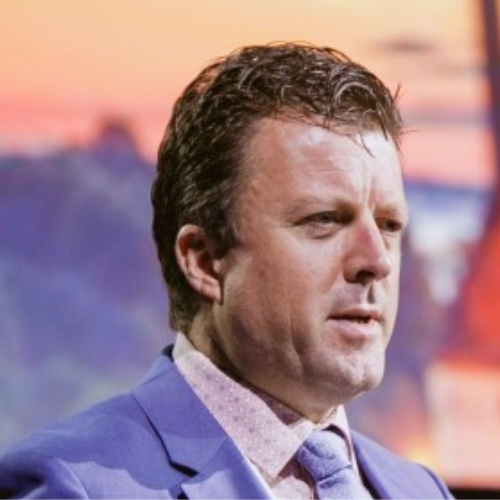Plenary sessions are a cornerstone of the High-Level Programme at the 16th ITS European Congress, offering in-depth exploration of strategic and impactful advancements within the ITS and mobility sectors. These sessions bring together influential panelists and keynote speakers, fostering a collaborative environment where experts from across the ITS ecosystem engage in thought-provoking discussions on key Congress themes.
At the 2025 ITS European Congress in Seville, three dynamic plenary topics will bring to life the overarching theme of “Clean, Resilient, and Connected Mobility,” spotlighting innovative approaches and transformative ideas aimed at shaping the future of intelligent transport.


This plenary will delve into how ITS can accelerate the transition to a more sustainable society, spotlighting Europe’s embrace of green mobility through technology and human-centred solutions.
The discussion will include urban space management through technology innovation, e.g., advanced kerbside management, last-mile logistics, smart charging integration, and Urban Vehicle Access Regulations (UVAR). Speakers will assess the role of technologies like digital twins and artificial intelligence in measuring and reducing transport’s environmental footprint.
Focussing on ways to build a green mobility future that is inclusive and competitive, panellists will examine the intersection of transport with the green economy (including funding models), human factors such as community engagement and equitable access, and behavioural shifts necessary to adopt Clean Transport Technologies, such as increased public transport use, support for active mobility and micromobility, and demand responsive transport.
The goal of this session will be to capitalise on Europe’s early adoption of green transport solutions and build on its leading role in sustainable urban planning and eco-friendly mobility systems.

Director General of Mobility Strategies,
Spanish Ministry of Transport and Sustainable Mobility

Secretary General, POLIS Network

Director-General for Transport,
City of Hamburg

Director, Global Product Partnerships, Google Maps

Deputy Mayor,
City of Łódź

Director,
Transport Community Treaty Permanent Secretariat

This plenary will address the urgent need for resilience in Europe’s mobility and logistics ecosystems to withstand environmental, technological, and geopolitical uncertainties. Leading actors across various sectors will discuss strengthening transport infrastructure design and usage to counteract negative externalities, improve system reliability, and enhance sustainability.
Key elements of the discussion will include fostering cross-sector cooperation to mitigate climate impacts, secure supply chains, and advance flexible, multimodal transport systems that reduce dependencies on single modes, and boost competitiveness across the mobility ecosystem.
Safeguarding data availability and accessibility is an indispensable condition for robust services for goods and people. This necessitates the incorporation of cybersecurity throughout the eco-system.
Panellists will address the role of digital infrastructure elements, such as data management, redundancy, and connectivity, in creating resilient, future-ready mobility solutions. By leveraging collaborative strategies, emerging technologies, and adaptive infrastructure, this plenary aims to outline a forward-thinking framework that will position Europe’s mobility sector to thrive in an evolving and often unpredictable global landscape.

Deputy Minister of Development, Infrastructure, and Territorial Planning,
Regional Government of Andalucia

Vice President R&D – Intelligent Systems Division
Southwest Research Institute

Director General of the Data, Safety and Security Department, Finnish Ministry of Transport and Communications

Head of Future Navigation Programmes Department, European Space Agency

Director of Investment, Innovative & Sustainable Transport, European Commission DG MOVE

Director General of the Data, Safety and Security Department, Finnish Ministry of Transport and Communications

Head of Future Navigation Programmes Department, European Space Agency

Managing Director, AustriaTech GmbH

Director of Investment, Innovative & Sustainable Transport, European Commission DG MOVE

This plenary will focus on strategies to foster innovation and accelerate market adoption of connected and automated mobility solutions, targeting societal and environmental goals in the face of global competition. Technical priorities include improving sensor accuracy, refining decision-making algorithms, and enhancing AI-driven real-time data processing.
Collaboration across stakeholders – industry leaders, policymakers, public authorities, and tech experts – is essential to advance these innovations. Harmonization standards, critical for interoperability and cross-border cooperation, and emerging trends considered transformative in automotive technology, such as software-defined vehicles (SDVs), will form the basis of the discussion.
The panel will also address key issues around the integration of connected vehicles with smart city infrastructure and traffic systems, with an emphasis on a safe systems approach to build public trust in automated mobility solutions. This comprehensive discussion, which aims to chart a path for Europe’s leadership in connected and automated mobility, will also cover the urgent need to reskill the workforce to align talent with the sector’s evolving demands.

Global V2X Lead, Qualcomm

Secretary-General, CEDR, Belgium

Provincial Head of Traffic in Seville,
Spanish Directorate General of Traffic

Coordinator of the Mobility Institute, RACC Mobility Club

Electronics, ITS & Smart Mobility Director, CTAG

R&D Director,
Renault Group